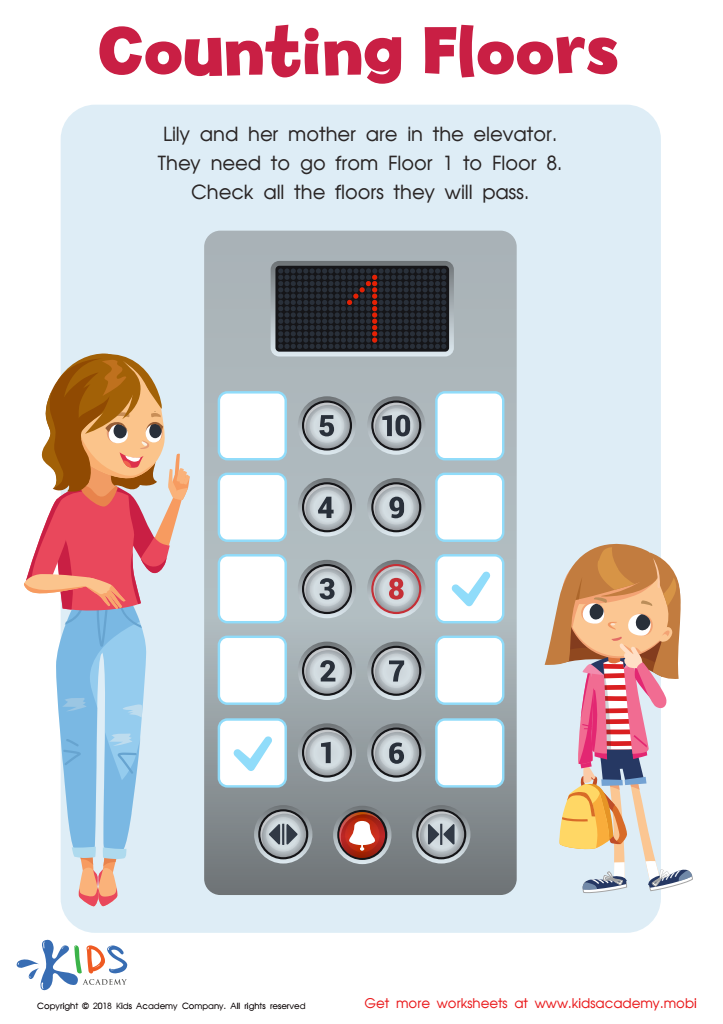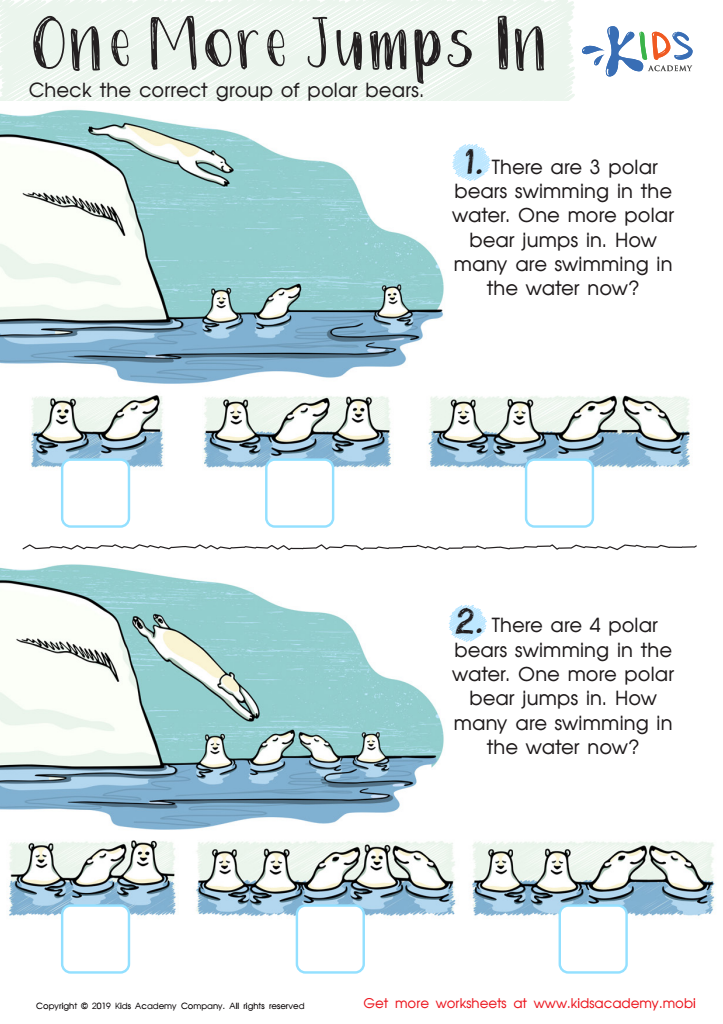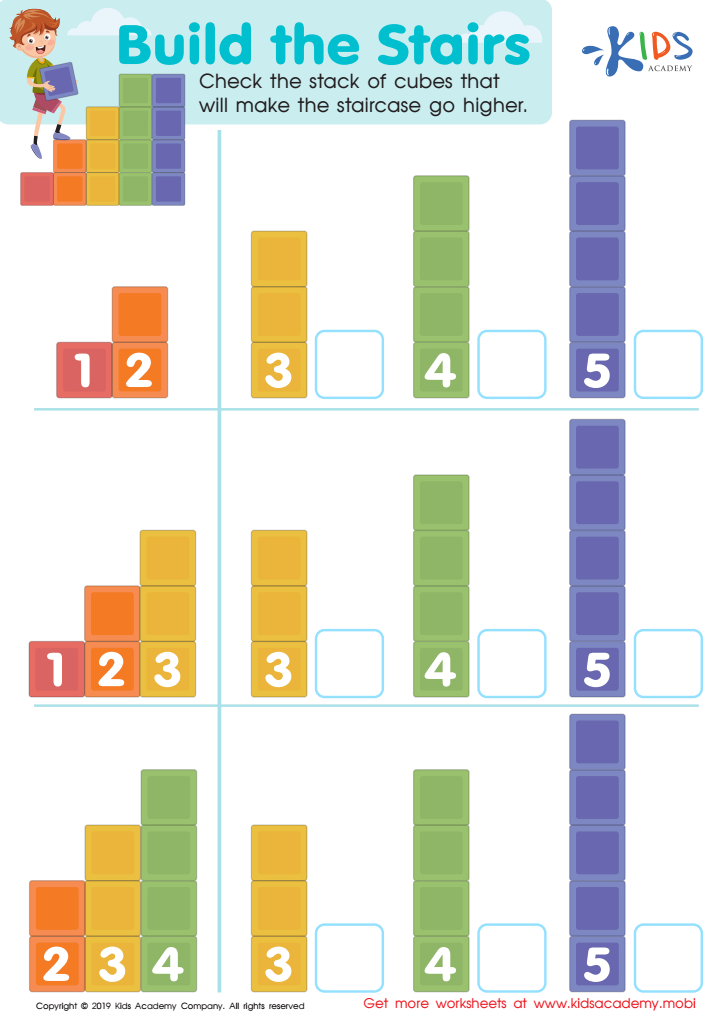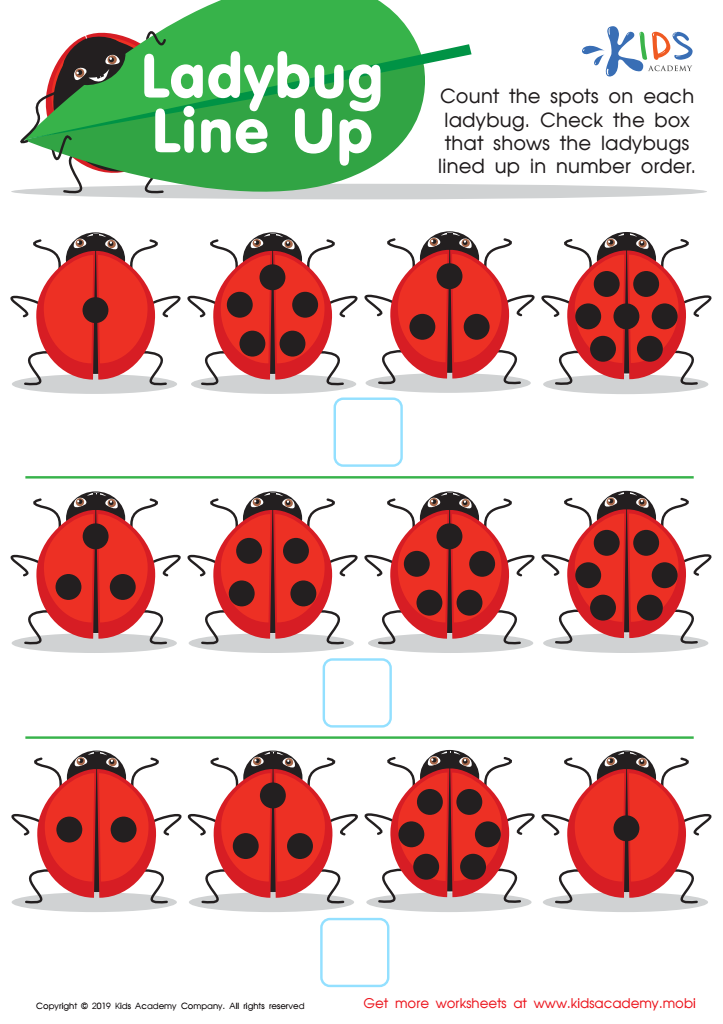Understanding sequencing Numbers Worksheets for Ages 4-9
4 filtered results
-
From - To
Discover our engaging "Understanding Sequencing Numbers Worksheets" designed specifically for children ages 4-9! These worksheets help young learners master the essential skill of number sequencing through fun activities that promote cognitive development and numeracy confidence. Each printable worksheet presents challenges tailored to various skill levels, making it easy for educators and parents to adapt lessons to individual needs. By practicing sequencing, children enhance their understanding of number order and patterns, crucial foundations for more advanced math concepts. Empower young minds and foster a love for learning with our interactive resources that make mastering number sequences both enjoyable and effective!


Counting Floors Worksheet


One More Jumps In Worksheet


Build the Stairs Worksheet


Ladybug Line Up Worksheet
Understanding sequencing numbers is crucial for children aged 4-9, as it lays the foundation for numerous essential mathematical concepts. At this age, children are developing cognitive skills that impact their ability to think logically and solve problems. Sequencing those numbers helps them recognize patterns, which is fundamental in subjects like math, science, and reading.
When parents and teachers emphasize the importance of sequencing, they help children grasp how numbers relate to each other—an idea critical for addition, subtraction, and more advanced operations later on. For example, understanding that "3 comes after 2" aids in decoding number operations and promotes skills such as counting in order. This concept also fosters organizational skills and promotes patience, as children learn to follow steps to arrive at a solution.
Moreover, sequencing activities can enhance memory and critical thinking, benefiting cognitive development. Using everyday activities such as ordering objects or discussing a calendar provides practical application, making learning engaging and relatable. By encouraging children to understand sequencing, parents and teachers create a strong mathematical foundation, cultivate a sense of order, and encourage a love for learning that can last a lifetime. Ultimately, this knowledge is essential for academic success and everyday problem-solving.
 Assign to My Students
Assign to My Students




















